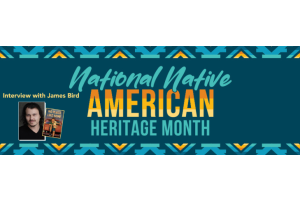Happy Banned Books Week!


September 18-24th is officially Banned Books Week for 2022. This week is observed every year and is used to raise awareness about books being banned and challenged in schools. Specifically, Banned Books Week takes a closer look at why these selections are targeted and explores how we can collectively work together to stop censorship.
How did Banned Books Week start?
Banned Books Week was created in 1982 by Judith Krug. Krug was an activist for first amendment rights and libraries. The Association of American Publishers reached out to Krug with the idea of bringing more attention to banned and challenged books. Together, they teamed up with ALA’s Intellectual Freedom Committee and a few weeks later, Banned Books Week began.
What is the purpose of Banned Books Week?
Banned Books Week is used to draw attention not just to books that are banned and challenged, but also to authors, publishers, librarians, journalists and editors that suffer because of their work. Throughout the world, many of these people face horrific human rights violations because of the topics they cover. This leads to censorship. Censorship limits our freedom and stops us from learning about new topics, concepts, and ideas.
Why are most books banned or challenged?
There are many reasons as to why books are banned or challenged. While there are certainly subject matters that aren’t appropriate for all age groups, this is not usually the reason books are challenged. While some titles are questioned because they are considered sexually explicit, or use offensive language, there are many other topics that have been under fire as of late. Things like LGBTQIA+ representation and discussion of critical race theory have been openly challenged and criticized. In fact, according to ALA, in 2021, five of the top ten challenged books in the U.S. contained LGBTQIA+ content.
How does a book get banned or challenged?
According to the First Amendment Musuem, most books are banned or challenged locally, although the U.S. government has banned a few books federally. There are formal processes in place to challenge a book.
According to Triton College library, “When a book is challenged, it must go through the challenge process. The person who initiated the challenge must read the whole book, fill out a challenge form, and explain why, how, and where in the book the offensive action took place, and then the case will be presented in a hearing and decided whether it should be removed from the collection or retained.”
It is also noted that many of these challenges do not get hearings because the person who created the challenge has not taken all the necessary steps to complete this process.
Although this process is in place, in many schools it is being overlooked completely and books are simply being banned to appease upset parents.
How prevalent are book bans in the United States?
According to an article from National Geographic, book bans are nothing new to our country. In fact, they’ve been taking place since the British colonies were founded in America. Book bans have appeared repeatedly during large historic events in the U.S. For instance, during the civil war, antislavery books and pamphlets were banned in many states. One famous example of this is “Uncle Tom’s Cabin” by Harriet Beecher Stowe. At the time of its publishing, some people faced jail time for simply owning a copy of this title.
Book Bannings have even been the focus of many Supreme court cases. In 1982, the Supreme Court said, “Local school boards may not remove books from school libraries simply because they dislike the ideas contained in those books and seek by their removal to ‘prescribe what shall be orthodox in politics, nationalism, religion, or other matters of opinion.”
Despite this ruling, book bans and challenges are at an all time high. According to a study done by PEN America, from July 1, 2021 through March 31 of this year, 1,586 books have been banned in America. The states with the most bans include Texas, Pennsylvania, Florida, and Oklahoma.
Overall, Banned Books Week is an important observance to draw attention to current books that are being banned and challenged, the treatment of those who's works are challenged, and the overall theme of censorship in our schools and country.






